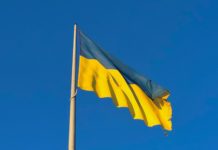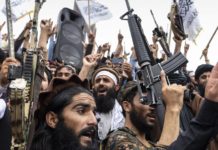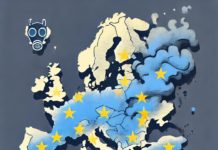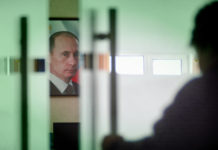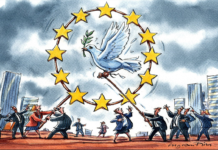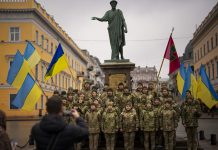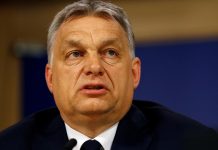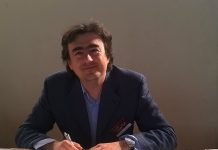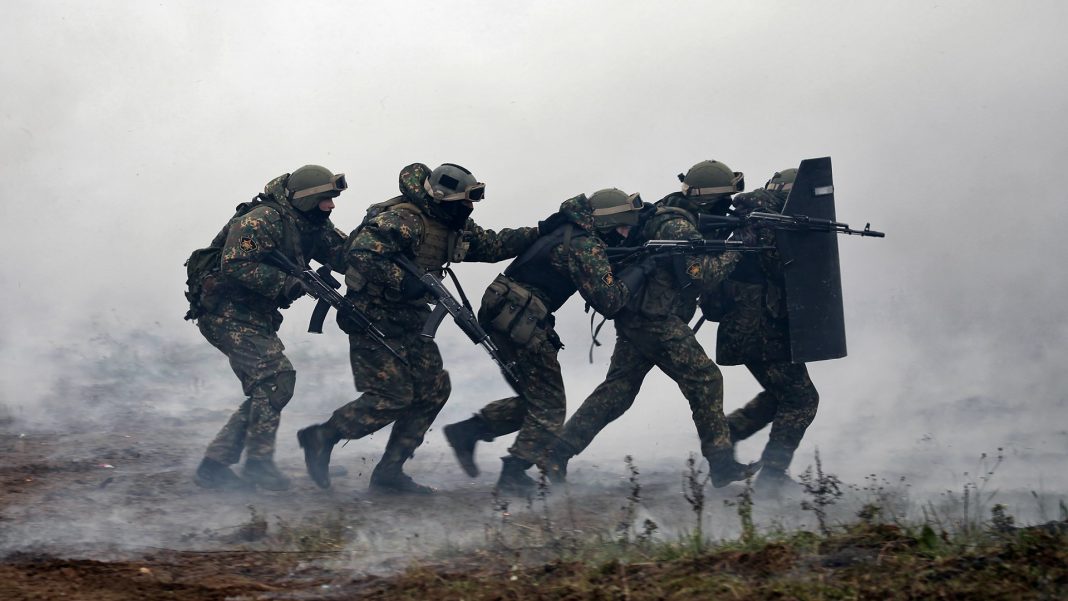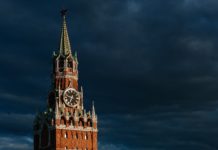Games and war. The view from Brams, Carse and Sinek
A YouTube post by the TED Archive account on November 8th 2016, the same day Donald J. Trump was elected as the 45th President of the United States, shows a previously unreleased 2015 TEDTalksLive conference by Simone Sinek about game theory and war. Simon Sinek is a British-American author and motivational speaker, probably best known for books like Start With Why or Leaders Eat Last, both New York Times best-sellers. In this talk, Sinek uses an idea first postulated by James P. Carse in his 1986 book, Finite and Infinite Games. A Vision of Life as Play and Possibility, that of the existence of two types of games, namely the ones mentioned in the title - infinite and finite. For Carse, as reiterated by Sinek, the most fundamental distinction between the two is that “a finite game is played for the purpose of winning, an infinite game for the purpose of continuing the play”.
Game theory has been widely used in political science and in real life situations. In this 2001 article, author Steve J. Brams explains how several models of games, or game theory, may be applied to a real case study – the Cuban Missile Crisis, specifically promoting his own model, the Theory of Moves (TOM). What it is interesting to note from his extensive and well written argument is that in real life, the two sides did not choose their strategies simultaneously, or independently of each other, but rather the system could better be described as sequential bargaining, a flowing duality of moves and countermoves. By probing the future for possible outcomes and adjusting strategies with this in mind, preemptive moves such as installing nuclear capable missiles on Cuban soil became attractive for a Soviet leadership who deemed an American invasion of the island as likely. As Brams says, “they thought that the United States, confronted by a fait accompli, would be deterred from invading Cuba and would not attempt any other severe reprisals. Even if the installation of the missiles precipitated a crisis, the Soviets did not reckon the probability of war to be high”.
Returning to Sinek, the Cold War bipolar world is considered an infinite game in his lecture. The Cold War stability, according to Sinek, derives from the fact that both players could not afford to lose the game in its worst-worst state, meaning nuclear war, so the game needed to be perpetuated. It is stable because both players are interested in continuing to do so, hoping that somehow or someday, the other will lose the will or resources to do so. While I do agree with Sinek’s interpretation, that the Cold War was meant to be perpetuated by both players, I do not think it is congruent to Carse’s interpretation. Carse’s approach is more philosophical and religious than statistical and mathematical and, as he says in his first chapter, “there is no finite game unless the players freely choose to play it. No one can play who is forced to play”. In the case of the Cold War, the threat of a nuclear war scenario was forcing the players to play. The Cold War was just a finite game in an infinite game of geopolitics and international relations. America “won” because the Soviet Union lost the political will to advance the game. This will be described decades later by Mr. Vladimir Putin as “a major geopolitical disaster of the century” and a “genuine drama” for the Russian nation.
Sinek correctly points out that the United States, through naïve interpretations of that era as the end of history, declared that they’ve won. Ironically, the New York Times said in a 1989 article about Fukuyama's essay that it “was the work of a representative from what is often referred to in academic circles as the real world. This was no professor, according to the contributor's note that ran in the magazine, but the "deputy director of the State Department's policy planning staff". This meant to show that this was the direction of the real world, because it was an idea that first appeared in the halls of the State Department, not in the mind of academia. Of course, this was not the case. Russia, China, and other regional players have slowly but constantly built up arguments of all sorts, from political to economical and even military that the world is not unipolar, but rather multipolar. And yet again ironically, the United States and the West in general, are to blame for this.
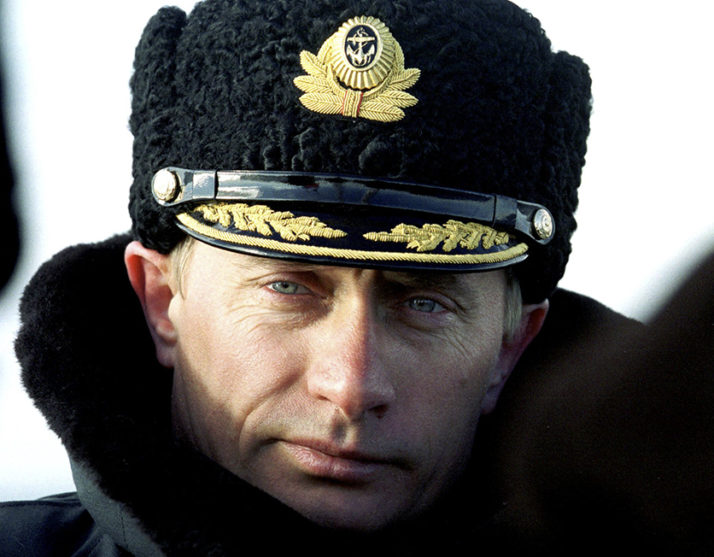
Instead of continuing to use the momentum of the collapse of communism in Russia, the U.S. went ahead with regional strategies that did not have an overarching narrative to subsume them all. Something that is the sum of our values as Sinek again points out correctly. In this department, the U.S. strategy lacks coherence and adherence to values. For example, the case of the use of waterboarding. The confirmation of Gina Haspel as the head of the Central Intelligence Agency shows the current administration inclination towards leniency on the use of torture. She has been accused of overseeing black sites – unofficial American run facilities abroad where foreign citizens, suspected of terrorism, were brutally interrogated, with techniques such as waterboarding. There is a more philosophical reason for handling this kind of prisoners abroad. Beyond the legality of the issue, torturing and exposing another human being, be it an alleged or even proven terrorist, to near death experiences, is not congruent to our Western values and the Americans know this. Perpetrating this on foreign soil diminishes the guilt that comes with operating contrary to your values. It is apparent that this would be in American interest on the short-term, to extract any valuable information from assets, as quickly as possible, but on the long-term, the U.S. image and prestige in the world will diminish, crippling its capacity to project soft power where it wants to.
The recent string of harsh rhetoric from Washington to its most important allies, such as Germany or Canada, is another departure from what our values are. Even if the general accounting of our common defense is obviously important and more European involvement, at least financially, is definitely needed, there should be no excuse for publicly attacking the very foundation of NATO and the transatlantic relationship, the certainty that, if ever the case arises again, American soldiers will be traversing the Atlantic to save Europe and vice versa. While America is by far the strongest part of this relationship, the vice versa scenario is unlikely. It so happens that Moscow is slowly but surely making the case for a tightening of this relationship, not a weakening of it.
What has been Russia up to and why is so dangerous?
To put it short, Russia is playing the long game. Russia is playing an infinite game. And what it is more dangerous is that it is playing it for its life, for its very existence. While the collapse of the Soviet Union relieved a lot of geopolitical tension from the U.S. and NATO, making Washington to lose focus, for Russia, things became dramatic, at least from a geopolitical point of view. The Yeltsin years remain in stark contrast with Putin’s rule. This Radio Free Europe analysis clearly shows the differences of governance between the two. While Yeltsin was often flamboyant and spontaneous, Putin is calculated and cold. Yeltsin sought deregulation and more freedom from Moscow for the provinces, Putin has clearly gone in the opposite direction. Why? Because his former KGB instincts, experiences and nostalgia interpret the geopolitical neighborhood around Moscow as encroaching around the city itself. NATO and EU expansion, together with some internal systemic problems that Russia faces, including chronic heroin use, high dependency on oil and gas and what Yale scientists call a “perfect demographic storm”, have made Moscow’s ruling elite, with Putin on top of the food chain, increasingly worried about the very existence of the so-called third Rome. Indeed, a rule like Yeltsin would have eventually encouraged factionalism and regionalism, probably slowly eroding Moscow’s authority and breaking up the Russian Federation in its federal component states. This is Putin’s worst nightmare. This is Putin’s apocalypse and he and his circle, especially the military elite, believe that this is already happening, with help from the liberal West. In an interview for his biography, Putin said that “I was convinced that if we did not immediately stop the extremists [in Chechnya], then in no time at all we would be facing a second Yugoslavia across the entire territory of the Russian Federation — the Yugoslavization of Russia”. This mind set is extremely important to understand if we are to find a way to counter Russia’s infinite strategy.
Sinek says that imbalance comes when an infinite player is stacked against a finite player. In this case, NATO and especially the U.S. is the finite player, while Russia is the infinite player. Why? As I said before, Russia is playing for its very existence. For Russia, this is a zero-sum game, with every inch of lost territory where it had political influence becoming a gain for the West. Sequential bargaining and Bram’s argument on how the Soviet’s became more prone to aggressive strategies when they faced a perceived impeding event, such as the invasion of Cuba, is being seen applied by Moscow again. The post-Cold War deterioration of East-West relations may be tracked much earlier in its manifestation but the annexation of Crimea will definitely remain a historic milestone of the West-Russian geopolitical rivalry. The removal of the coat of arms of Ukraine from the Crimean regional parliament on March the 14th is a direct consequence of Moscow’s interpretation of the events that happened in Maidan Square in Kyiv. It really doesn’t matter the degree of influence NATO allies had on the protests, as long as Moscow and Putin firmly and unwaveringly thought that it was a plot by the West to cripple Russia and ultimately trigger regime change in Russia itself. So, we saw the annexation of a territory that is roughly a third of the Czech Republic, in the outskirts of Europe by a revisionist Russia.
Then, Moscow upped the ante in the Middle East by actively participating in the Syrian conflict and openly opposing the U.S. alleged strategy of regime change. 2018 has seen another major milestone in a worsening relationship: the U.S. Senate concluded that Russia did meddle in the 2016 elections, based on its review of the Intelligence Community reports from 2017. This is a major, aggressive move against the core principles of American and Western societies. The IC report states and the Senate Intelligence panel agrees that “we assess Russian President Vladimir Putin ordered an influence campaign in 2016 aimed at the U.S. presidential election. Russia's goals were to undermine public faith in the U.S. democratic process, denigrate Secretary Clinton, and harm her electability and potential presidency. We further assess Putin and the Russian Government developed a clear preference for President-elect Trump”. Last but certainly not least is Russia complex and cunning strategy vis-à-vis Europe. The way Russian authoritarianism, specifically what the Economist calls Putinism, has captured the attention of fringe political groups in Europe, particularly far-right groups, and empowered them, with Putin becoming some sort of Che Guevara for anti-liberal, conservative, far-right supporters across the continent, as Peter Pomerantsev put it in his opinion piece for Politico Magazine. This sway has attached itself to the already growing divides the continent and the European project is facing, with East-West, North-South narratives that are becoming deeply entrenched in the politics of the Union. The basic principle that Russia is adhering to is the fact that the European Union and NATO are practically impossible to defeat in military fashion. Even if Russia conducts a full scale military war against European NATO, with Moscow having the initiative, the industrial might of Germany, France, and Great Britain, higher population, better technological advancements and overall economic capabilities will eventually overcome any threat posed by Russia. So, naturally, Russia will try to fragment the Union and possibly NATO in smaller, more digestible pieces. Political and economical fragmentation through the clever use of energy, disinformation and military intervention have already widened the gaps between European and NATO allies.
Russia is playing an infinite game because it fears for its existence. The rise of the West and NATO has put Russia in a corner, particularly Russia’s ruling elite. Russia’s patriarchal, conservative model is very sensible to change. Russians are hooked on a Messianic figure to save them from the hardships of life and war. Putin is such an archetype, one that is not compatible with the liberal values that the West if founded on. This clash is now following Sinek’s infinite versus finite player model. Russia seeks survival and thus is becoming cunning, bold, aggressive, and preemptive. Russia does not see an end of this struggle even in the long-term. America and Europe’s might in metrics such as GDP, technology, development, are too much to overcome, but by praying on their internal divides and holding on for as long as possible, hopefully until the political and economical cost for trying to subdue them becomes too great, Russia might even win. This is the same strategy Afghanistan used against the Soviet Union and the U.S., both major military powers, both practically defeated, in terms of their objectives. Same case with Vietnam. The U.S. was there to “win”, while the Vietcong was fighting for its very existence. It would have never surrendered because it would have equated it to extermination, at least from their point of view. For this fundamental reason, America lost.
Moreover, Russia is getting better and it is in a surprising good position. The extent of Russian influence on the election of Donald Trump remains to be determined by the Mueller investigation, but we can be sure that Trump’s inclination to dialogue with Russia and apparently a preference to lash out at allies are just a bonus for Russian strategists. The real objective has been already achieved: the polarization of American society to a point where it affects its ability to have a coherent foreign policy. Even if Hillary Clinton would have been a more difficult president to manage for Moscow, the fact that it actively used digital tools to sow discord and flame existing tensions in American society shows that Putin has learned an important lesson: the only power in the world capable of nudging America from the top of the geopolitical food chain is America itself. Lucky for him is that America is bipolar. An interesting map by the New York Times, posted after the 2016 elections clearly illustrates the two Americas that voted so differently in November of that year. Densely populated cities of liberal Democrats floating in the vastness of Trump deep America is an architecture that is prone to be used by Russia to cripple America.
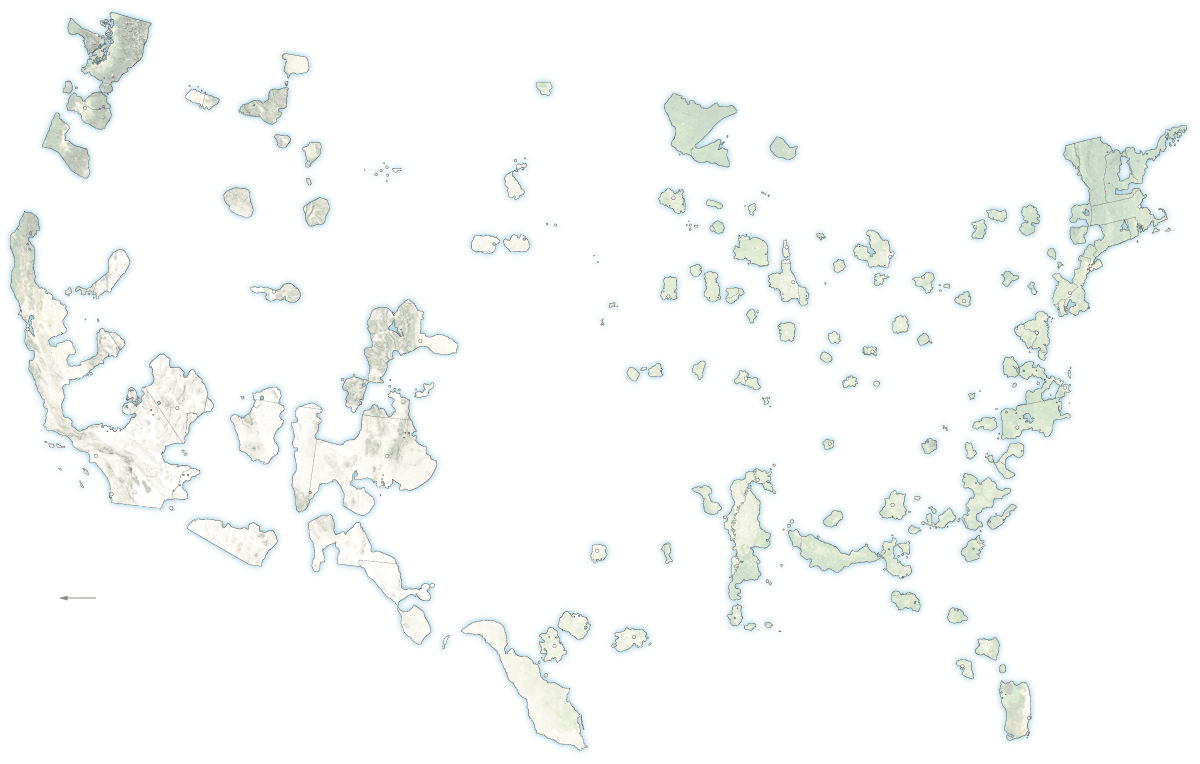
The fact that Russia is playing a more intelligent strategic card is not even the most dangerous part of this rivalry. I think that the fact Moscow sees this as a question of survival, not of winning, means that it makes it much more determined, prone to high risks, adventurous and aggressive. It is good to take note that the Russian military doctrine states that it reserves the use of nuclear weapons against conventional attacks, essentially a first use policy, if the very existence of the Russian state is in question. This insecurity translates to more volatile game theory scenarios, such as the ones described by Brams.
How do we counter an infinite strategy and what do we do next?
Well, of course, we counter it by understanding that the Cold War was just a finite game within the infinite game of international politics. We win by reconnecting with our values and crafting our strategy based on them, not merely on separate interests in far reaching parts of the world. Yes, U.S. strategy should be adjusted to suit tactical and political needs in the Middle East, East Asia or Eastern Europe but it should definitely have a common thread, an overarching narrative, such as we had in the Cold War. The West stood for liberty, for human rights, while the Communist world was portrayed as the opposite. Today, the West cannot pick itself up and stand for something. The divide between liberals and conservatives has been devouring political will on both sides of the Atlantic and amidst both societies, with Russia only standing to gain from this.So, one first step would be to regroup and start seeing that Moscow’s elite (not necessarily the Russian people) is an adversary, and a cunning and Machiavellian one. Step two is to start to be coherent in terms of values. Standing united against Russian bombing in Syria and against Russian backed Assad chemical genocide is a good starting point. The Trump-Putin summit in Helsinki is a difficult event to predict or to interpret. While dialogue in the form of a summit is definitely welcomed in the context of Russian entanglement in major world crises, such as Ukraine and Syria, the American position, especially vis-à-vis Ukraine and NATO is critical. If Trump seems to somehow concede to Russia with regards to Ukraine, coupled with strong words for Chancellor Merkel, it could severely undermine U.S.-E.U. relations and, ironically, drive Berlin towards Moscow, (German journalists characterized Russian-German relations prior to Merkel’s visit to Sochi in 2018 as experiencing a “renaissance”) not Moscow towards Washington. Putin understands that a Washington-Moscow entente is unlikely and unnatural, but a Berlin-Moscow entente is not.
Step three is to use Russia’s own tools against it. Russia is extremely prone to social unrest so targeting sanctions against state owned enterprises which employ a lot of people and form the basis of the pyramid of the oligarchs is an efficient way to disrupt Putinomics, which is based in preserving macroeconomic stability at all costs.
The best way to counter an infinite strategy is to also have an infinite strategy and to have more resources and political will at hand. While resources favor the West, common political will is currently in short supply. From Seattle to New York, Lisbon, Berlin and Bucharest, the Western world embodies classical humanistic values, rule of law and human rights that are the key to form a strategy for the infinite game of international politics. If we do this, we might have a chance to witness, maybe even in this century, the embrace of the Russian people of a true democracy, not the messianic-destructive ruling cycle that Russia experienced in some form or another over the last centuries. This is extremely difficult due to the house of cards effect – if Moscow’s authority diminishes, there is a real risk of federal fragmentation, which would not be in the West’s interest.
In conclusion, while game theory is useful in assessing an adversary moves and develop countermoves, the best long-term strategy is to have a good understanding of the values on which a strategy is developed. If we remain true to those values even in the darkest and longest parts of our journey as a civilization, we will ultimately survive, only to evolve, hopefully into something better and with more adepts than when we started on this path. Abandoning our values surely means that we will be submerged in a history that will be written by others. Others that may not share our appreciation for free speech, human rights or individual liberty. That is a future that we all are responsible to avoid and to fight against. The war has already started.




